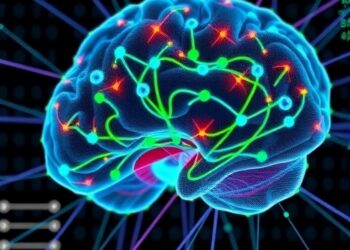Recent research published by Northwestern University has provided groundbreaking insights into the impacts of juicing on human health, revealing that juice-only diets could lead to adverse effects rather than the anticipated health benefits. The study, which involved healthy adults, examined how various dietary patterns—specifically juice-only diets—affect the microbiome, particularly the gut and oral bacterial compositions. These findings challenge the common perception that juice cleanses are inherently healthy, emphasizing the necessity for a more cautious approach to such dietary regimens.
Juicing, often marketed as a health-boosting practice, typically involves extracting liquids from fruits and vegetables, which, while rich in vitamins and minerals, lacks the fiber found in whole produce. Fiber plays a crucial role in maintaining gut health by serving as a substrate for beneficial bacteria. The research conducted by Northwestern scientists involved three groups of participants: one consumed only fruit and vegetable juices, the second group combined juices with whole foods, and the third relied exclusively on whole plant-based foods. Genetic sequencing techniques were employed to analyze the shifts in bacterial populations in saliva, cheek swabs, and stool samples collected throughout the study.
The outcomes of the study were significant, particularly for the juice-only cohort, which exhibited notable increases in bacteria typically associated with inflammation and increased gut permeability. This raises alarming concerns about the long-term health effects of juice-based diets, suggesting that they could inadvertently contribute to chronic conditions linked to inflammation. Conversely, the participants who followed a diet enriched with whole plant-based foods showcased more favorable microbial changes, highlighting the benefits of dietary fiber in promoting a healthier microbiome.
Interestingly, the group that consumed both juices and whole foods also experienced some shifts in their microbiota, but these alterations were less extreme than those observed in the juice-only group. This finding indicates that while juicing alone can lead to detrimental changes in gut health, incorporating whole foods may mitigate some of these adverse effects. The researchers concluded that the absence of fiber in juice diets could disrupt the delicate balance of the microbiome, hinting at potential long-term consequences for metabolic health and overall well-being.
A critical aspect of the research highlighted how quickly dietary choices can alter the oral microbiome. While the gut microbiota remained relatively stable despite the dietary interventions, the oral microbiome exhibited dramatic fluctuations during the juice-only phase. Specifically, there was a decrease in beneficial Firmicutes bacteria and a rise in Proteobacteria, a group associated with inflammatory responses. This rapid response of the oral microbiome signifies its potential as a barometer for assessing dietary impacts on health.
Dr. Melinda Ring, the senior author of the study, emphasized the need for awareness regarding the microbiome’s reactions to dietary changes, particularly in the context of contemporary dietary trends that favor quick fixes for health, like juice cleansing. Her insights underline the necessity of including fiber in one’s diet, as it plays a fundamental role in supporting beneficial bacteria that produce essential compounds for gut health. Thus, when consumed in excess without fiber, juice can contrarily nourish sugar-loving bacteria at the expense of beneficial strains crucial for maintaining a balanced microbiome.
Moreover, the research suggests that reduced fiber intake might adversely affect other aspects of human health, including metabolism, immune function, and even mental health. Given that the modern diet often lacks adequate fiber, the findings of this study are a clarion call for individuals to reassess their dietary choices, particularly concerning popular detoxification practices like juicing. It’s crucial to remember that while juices can be a part of a healthy diet, they should not replace whole fruits and vegetables.
Another noteworthy implication of the study is its focus on children, who frequently consume fruit juices as alternatives to whole fruits. The effects of juicing may be particularly pronounced in younger populations, who are still developing their microbiomes. The researchers stressed the importance of educating families about the nutritional implications of juice consumption in place of whole food servings, suggesting that juicing should be approached with greater caution.
In light of the findings, researchers advocate for more extensive investigations into how juice-based and other restrictive diets affect the microbiome. The nutritional profiles of juice, particularly in terms of sugar and carbohydrate content, merit further examination, as these components directly influence microbial dynamics. While juicing has gained popularity within diet cultures, understanding its impacts through a microbiological lens sheds new light on its role in health.
As the research prompts a rethink of dietary norms, Dr. Ring suggests some practical alternatives for those who enjoy juicing. Instead of opting for juice cleanses, individuals may consider blending fruits and vegetables to retain fiber or pairing juice with whole food servings to bolster microbiome health. Such strategies could enable the enjoyment of nutritious juices while maintaining a balanced dietary approach.
In conclusion, the implications of this study serve as a reminder that not all health trends are beneficial. Juicing, while often perceived as a healthful practice, may come with unintended consequences that overshadow its perceived benefits. This foundational research paves the way for a broader conversation about food, health, and the intricate ecosystems within our bodies, urging consumers to approach dietary interventions with an informed and balanced perspective.
Subject of Research: Effects of Vegetable and Fruit Juicing on Gut and Oral Microbiome Composition
Article Title: Effects of Vegetable and Fruit Juicing on Gut and Oral Microbiome Composition
News Publication Date: 27-Jan-2025
Web References: 10.3390/nu17030458
References: Nutrients, Northwestern University Study
Image Credits: Northwestern University
Keywords: Juicing, Microbiome, Gut Health, Inflammation, Fiber, Diet, Health Impact, Oral Microbiome, Nutritional Studies




